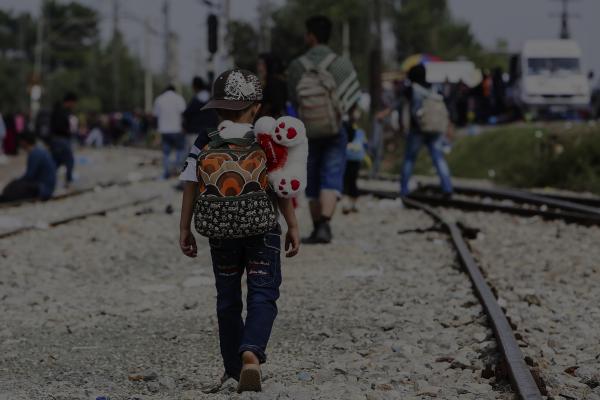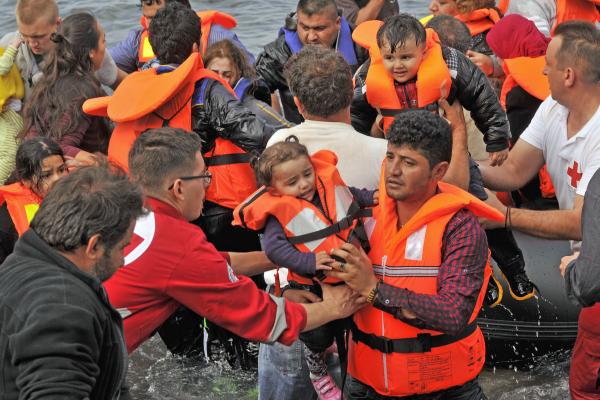An Italian investigative journalist on Nov. 17 spoke out against what he called a “medieval” Vatican law that might result in a jail sentence of up to eight years for publishing confidential Holy See documents.
Emiliano Fittipaldi, whose new book Avarice reveals the struggle for financial reform at the Vatican, is under investigation for publishing secret documents leaked from the Holy See. A fellow Italian journalist, Gianluigi Nuzzi, is also being investigated for revelations made in his book, Merchants in the Temple.
While describing the investigation as “a terrible moment,” Fittipaldi remained defiant:
“From my point of view they are crazy charges, in the sense that in no democratic state, in no Western democracy, are there such restrictive laws on press freedom and expression.”
Even though the Great Recession officially ended in 2009, 72 percent of Americans believe that the U.S. is still in recession, a figure unchanged from 2014. While that figure has remained steady, this year has seen a dramatic spike of discontent regarding economic inequality. Over the past four years, only slight majorities (53 to 55 percent) have agreed that “One of the big problems in this country is that we don’t give everyone an equal chance in life.” But in 2015, 65 percent of Americans agreed.
And Republicans and Democrats overwhelmingly agree, at least on this: The federal government is looking out for the rich. The American Dream, seemingly in question since the Great Recession, is now only an idle daydream for most.
And as Americans give up on the American Dream, they grow more suspicious of immigrants. In 2012, 57 percent of Americans believed that immigrants strengthened the U.S. That number has now, dangerously, fallen below a majority, to 46 percent. And it has gotten personal — more people report being bothered when they encounter non-English speakers.
A friend of mine who was serving as chief of his band said that the heart of Indigenous Cree spirituality revolves around praying for good hunting in the fall, and giving thanks for good hunting in the spring.
When I relate this story, sometimes people ask, “How do you know it was good hunting?”
I replied, “If you make it through the winter alive, it was good hunting.”
In Indigenous Cree theology, we begin with the idea that it is a good world. The Creator made her, and she provides for us. Our response to enjoying the world that Creator has provided is to give thanks.
Thanksgiving fulfills the circle of relationships that characterize our journey here on the circle of the earth. Being unthankful can indicate a shift in focus, from the relationships that make up our world to focus upon ourselves.
When we think about the meeting of the first pilgrims and the Native Americans, we usually connect vicariously to one side of that old Plymouth encounter, mysteriously linking our faith journey to the early pilgrims’ faith journey. But what about those long-ago Native Americans? Is there a reason to remember them as more than a foil for the pilgrims?
Year after year we think warmly of that first union of the pilgrims and the Native Americans — and then we continue on in the supposed faith tradition of one of those peoples without another thought to the fate of the others.
So what role do those old Native Americans play in our faith today, and how might we bring them to mind or honor them? Here are a few ways you can faithfully honor both sides of the Thanksgiving table this year.
I’ve heard it said that you don’t know true love until you hold your baby for the first time. I hate that, for so many reasons. And I hate whoever has said it to me or anyone else. Hate it.
This may come as a shock, but I’ve got the slightest anger issue. It’s more accurate to say I didn’t know true anger until I became a mother.
There’s the daily anger, like slaving away in the kitchen for hours only to have people gag and demand crunchy toast and cookies to eat, while they scream and scratch their sister and slip on spilled water and cry for hours. There’s the hourly anger, like the struggle between wanting to check out and check e-mail in the face of little people wanting to play or needing to be disciplined.
As we stand together around the world, shocked and mourning with the thousands who lost their fathers, mothers, sisters, brothers, relatives, and friends in France, Lebanon, and Iraq, one thing bothers me most about the narrative around the terrorist attacks in Paris.
From the moment first reports started streaming in from France, even when the details surrounding the tragedy were very scarce, mainstream media pundits were far too eager to bring Syrian refugees into the story of the Paris massacre. They planted the seeds of doubt into the minds of millions that somehow Syrian refugees shared responsibility for the massacre.
Two months ago I worked on the last several miles of the refugee trail from Syria, Iraq, and Afghanistan to the Croatian border. I helped drive nearly 100 refugees to the border, and distributed food, water, clothes, and shoes to at least 2,000 more.
I still remember the stories of some who did not hesitate to tell my team why they left Syria or Iraq.
Whether you like it or not, Christians are called to help the world’s most abused, hurt, helpless, exploited, and destitute.
If you’re a follower of Christ passionate about social justice, of if you attend a church that claims to be enthusiastic about global missions, or if you’re part of a Christian organization that facilitates ministry, you’ve been handed a golden opportunity — the ability to minister to millions of people in desperate need.
This is a chance to be radically countercultural — to glorify Christ through selfless sacrifice, hospitality, and love. Being a Christ-follower isn’t easy, and it will require hard work, but it’s worth it.
To leave the trafficked sex industry is to encounter many barriers. Among those is the need for employment opportunities and the opportunity to learn a trade while gaining skills to earn an independent income.
Consider this: A woman leaves a trafficker, through his arrest or her own personal escape. This trafficker created total dependence — someone who, amidst abuse and exploitation, provided for her. She usually had no control of this money, and gave over anything she made for his earnings. Her needs are met — but she is completely dependent on him for survival.
Then she is separated from her trafficker, and she has nothing: No income, usually a limited education, and at times minimal job skills to report on a resume. Her survival reflects her strengths and resources — but how does she capture resilience for prospective employers? What does she do when she carries a criminal record history?
One survivor described this experience to me, saying, “I look horrible on paper.”
"The people who are fleeing Syria are the most harmed by terrorism, they are the most vulnerable as a consequence of civil war and strife. They are parents, they are children, they are orphans. And it is very important — and I was glad to see that this was affirmed again and again by the G20 — that we do not close our hearts to these victims of such violence and somehow start equating the issue of refugees with the issue of terrorism.
"When Pope Francis came to visit the United States, and gave a speech before Congress, he didn’t just speak about Christians who were being persecuted. He didn’t call on Catholic parishes just to admit to those who were of the same religious faith. He said, protect people who are vulnerable."
Teams around the NFL paid tribute to those who lost their lives in the terrorist attacks in France last week with a moment of silence before Sunday’s games.
At Lambeau Field, before the Green Bay Packers lost to the Detroit Lions 18-16, a fan shouted out a slur against Muslims during the moment of silence.
That did not sit well with Green Bay quarterback Aaron Rodgers, who called out the fan in his postgame comments.









